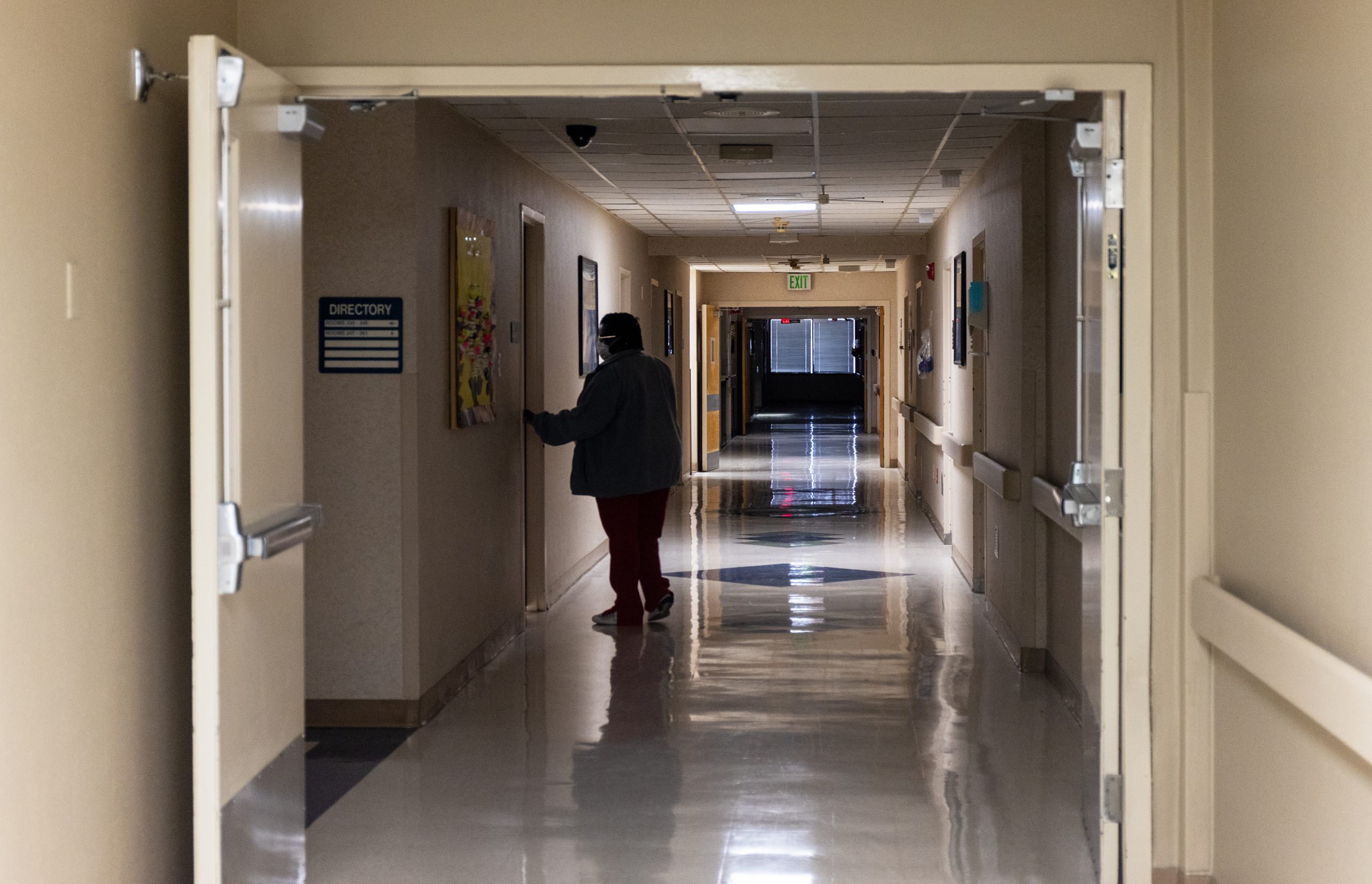Mississippi Today
The death of rural hospitals could leave Mississippians ‘sick, sick, sick’
The death of rural hospitals could leave Mississippians ‘sick, sick, sick’
GREENWOOD – Only a few dozen cars sit in Greenwood Leflore Hospital’s parking lot.
The hospital’s windows, streaked with purple paint, read, “Stay strong!” Another one says, “We love our patients!” Behind the glass, magazines sit untouched on side tables —the lobby is vacant.
Greenwood Leflore is the community’s only hospital, and it’s months away from closing.
The COVID-19 pandemic drained the hospital, which was already financially vulnerable, dry. Costs went up, while profit did not. Doctors and nurses, burned out from the pandemic, left in droves. Now, the hospital is shutting down floor after floor, cutting costs to maintain operations.
Mississippians know this story.
Dozens of hospitals across the state, many the only in their communities, are struggling to stay open.
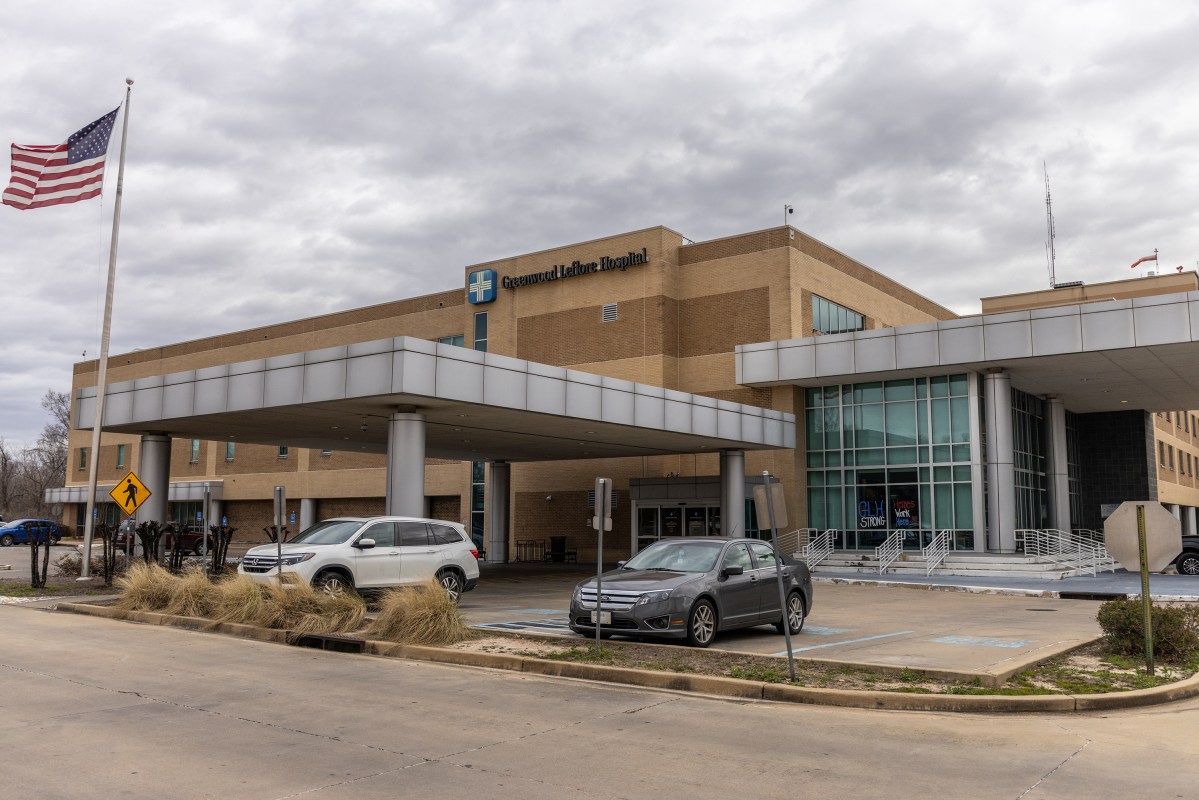
A report from the Center for Healthcare Quality and Payment Reform puts a third of Mississippi’s rural hospitals at risk of closure, and half of those at risk of closure within the next few years. There are only three other states with worse prognoses.
But it’s especially devastating in Mississippi, where life expectancy and health outcomes are consistently the worst in the country.
Hospital administrators are holding their breath, waiting on help from the state, but they could be getting less money this year than they need. And there’s little to no chance that state leaders will expand Medicaid this year as 40 other states have done. Expanding Medicaid under the Affordable Care Act would bring more than $1 billion in federal funding to Mississippi in a year.
Ryan Kelly, executive director of the Mississippi Rural Health Association, said the situation is dire, and there’s not a straightforward answer.
“I wish, for the sake of simplicity, I had one single thing I could point to and say this is the problem,” he said. “We have been saying this for a long time that this will get serious and it is now serious.
“We are in far more of a serious time now than we ever have been before.”
For the hospital CEOs, doctors and residents of rural Mississippi, this isn’t just a statistic. It’s a life-and-death reality.
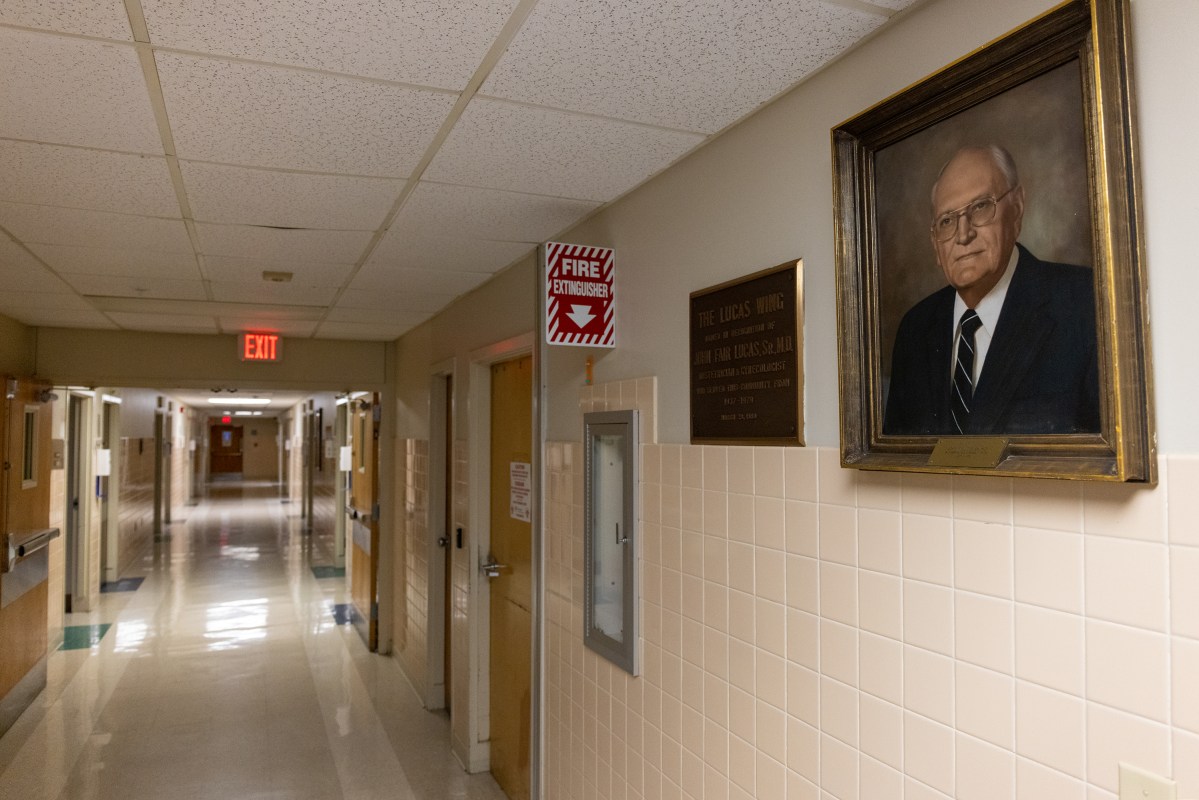
‘Hospitals can close. Watch and see.’
Dr. John Lucas’s office is at the end of a quiet hallway, past empty rooms with empty beds.
Though he’s spent his entire professional life at Greenwood Leflore, Lucas, a longtime Greenwood resident and now chief of staff, remembers starting his career as a surgeon in a much different hospital than the one he sees today.
His late father, Dr. John Lucas Jr., practiced at Greenwood Leflore from 1963 until his retirement in 2011. Back in the hospital’s heyday, Lucas said his father’s patients overflowed into the hallways. At that time, the hospital was licensed for 250 beds, he said.
When Lucas joined his father at the hospital in 1988, he didn’t experience that level of activity, but it was a far cry from the desolate hospital he serves today.
“It wasn’t uncommon to have as close to 200 beds full when I first came here,” he said. “It’s really sad to walk these empty halls and to see that we only have one part of one floor occupied with patients.”
In the past decade, Lucas has watched the hospital close unit after unit, tapering services in an effort to stay open.
First it was the neurosurgery department. Then, it was the urology department and inpatient dialysis. Now, the hospital doesn’t have full coverage of its emergency room for orthopedics or general surgery. Most recently, it shuttered its labor and delivery department and intensive care units.
At a health affairs committee meeting in February, Nelson Weichold, chief financial officer at the University of Mississippi Medical Center, said the worst part about the looming hospital closures is the slow cessation of services.
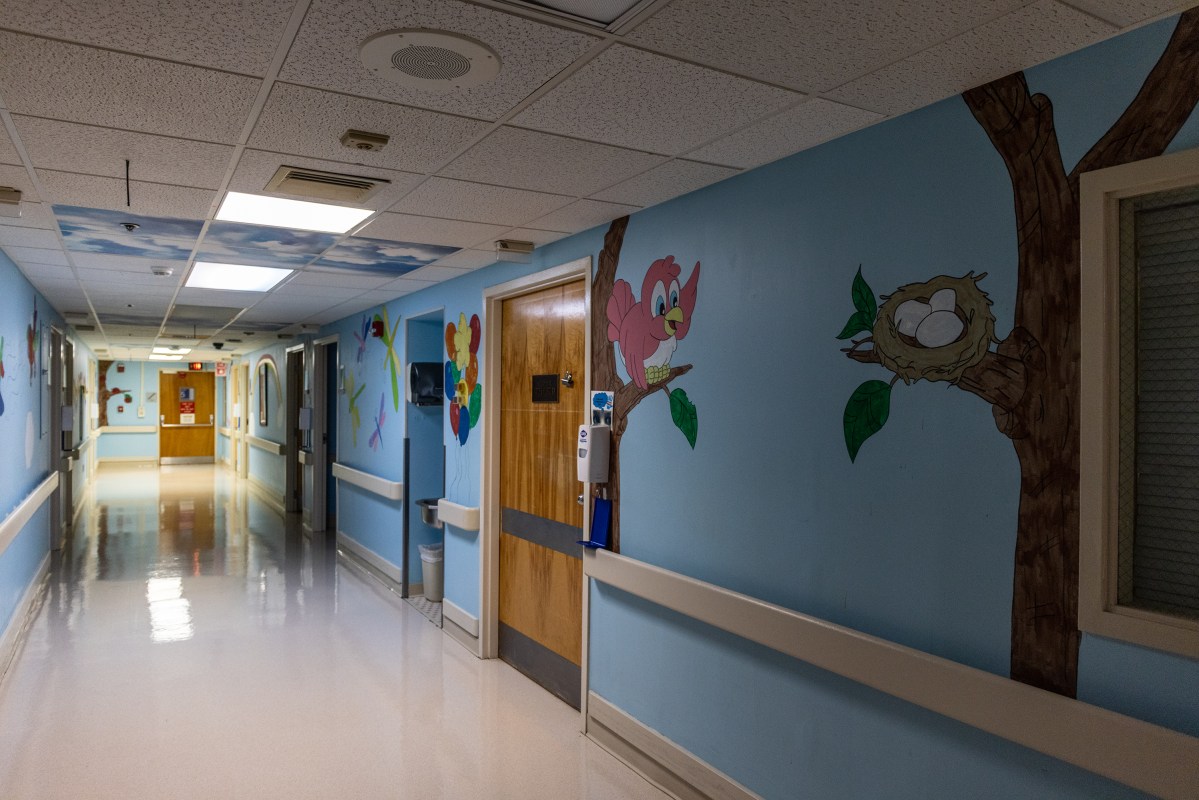
“It’s not just when the hospital closes,” he said. “It’s the years building up to that when they’re taking financial measures to do everything they can to try and keep the doors open.”
But it’s not financially viable to keep all of those service lines open anymore, according to Greenwood Leflore’s interim CEO Gary Marchand.
About 75% of the hospital’s patients are uninsured or on Medicaid or Medicare, which underpay the hospital for its services, Marchand said.
So most of the time, that means the hospital is losing money caring for its patients. And for the quarter of patients who have commercial insurance, the hospital often has to fight with the company to get the claim paid, he said.
“Our challenge is we have to map the inadequacy of those payments to our cost structure,” Marchand said. “For years, systemically, they (Medicare, Medicaid and commercial insurance) have paid below real cost.”
Before 2020, the hospital was losing between $7 to $9 million a year, Marchand said. To satisfy the city and county, which partially own the hospital, Greenwood Leflore leaders came up with a plan to generate $7 million a year to break even.
Then COVID hit, and everything changed.
The hospital went into the pandemic with $20 million in cash reserves. With each wave of the virus, despite government relief, their reserves were depleted. By the end of 2021, half of the cash was gone.
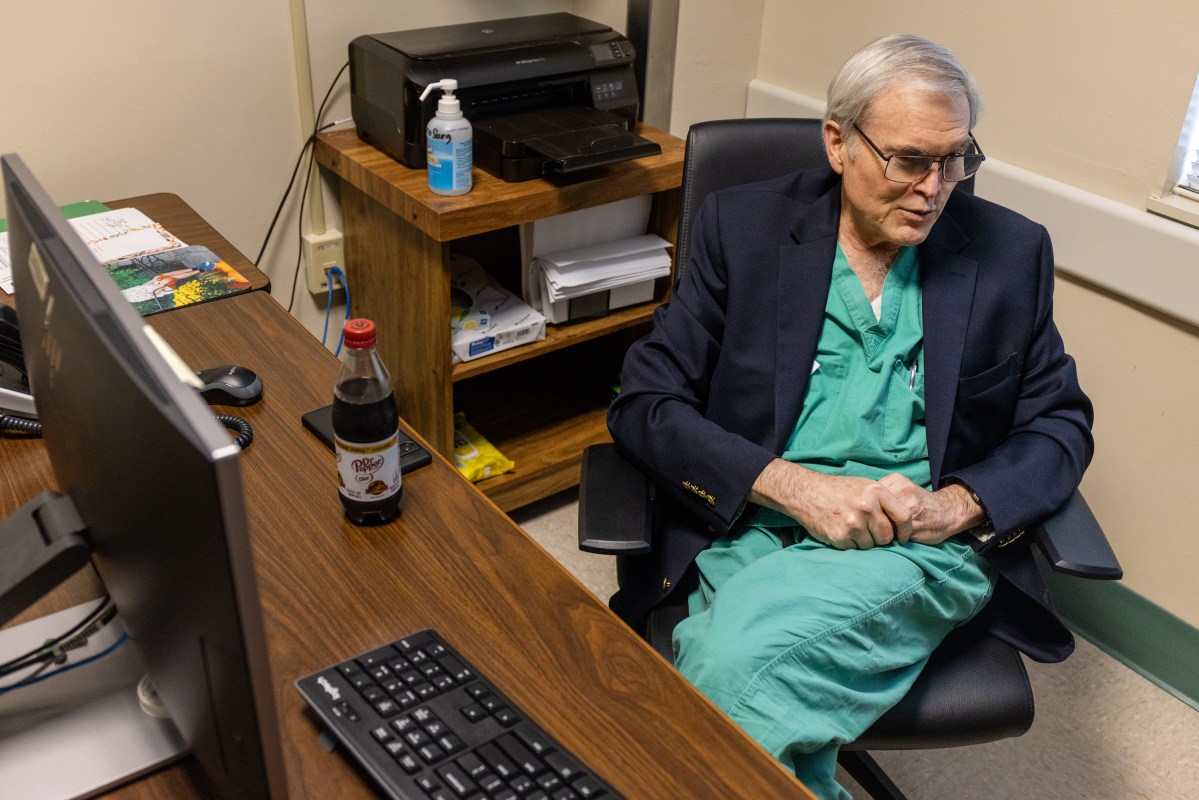
It’s a fallacy that hospitals made money during the pandemic, Marchand said. Because Medicaid and Medicare paid for patients by their diagnosis, not the length of their hospital stay, patients who were in the ICU for weeks ended up costing the hospital.
Greenwood Leflore hasn’t been able to make the money back — it’s not clear why, but fewer people are seeking care, and payments have remained stagnant.
For several months, the University of Mississippi Medical Center was entertaining a plan to lease the hospital, saving it from closure. However, in November, the deal abruptly fell through without explanation from UMMC.
Marchand said the hospital has six months to figure out a plan or it’ll be forced to close.
“The struggle is to get the community and the legislators and others to understand a hospital is a business,” he said. “I think a lot of people think, ‘Oh, you need hospitals. They’re never going to go away.’
“Hospitals can close. Watch and see.”
A quick scroll on the hospital’s Facebook page shows that Greenwood residents know that closure is a real possibility.
Lucas said he hears the same refrain over and over again when he’s out in the community: “How’s the hospital doing?”
“Whenever I go to a social outing, it’s the first thing I get asked,” Lucas said. “Everybody’s concerned.”
Pie Fincher and her family are products of Greenwood Leflore Hospital.
Fincher, who is 89 years old, has only gone to another hospital for treatment one time in her life. Both of Fincher’s children were born at Greenwood Leflore, and the hospital has saved her life several times, she said, including once when she had a major brain bleed.
“It’s just been a lifeline for our family,” Fincher said.
But the neurology department doesn’t exist anymore. Neither does labor and delivery. Those doctors that delivered her kids and saved her life are long gone.
“I vividly remember how proud we were of that hospital to be built (in its current location in 1952),” Fincher said. “It was just state of the art everything. As time has gone on, we’ve been so fortunate to have so many wonderful doctors.
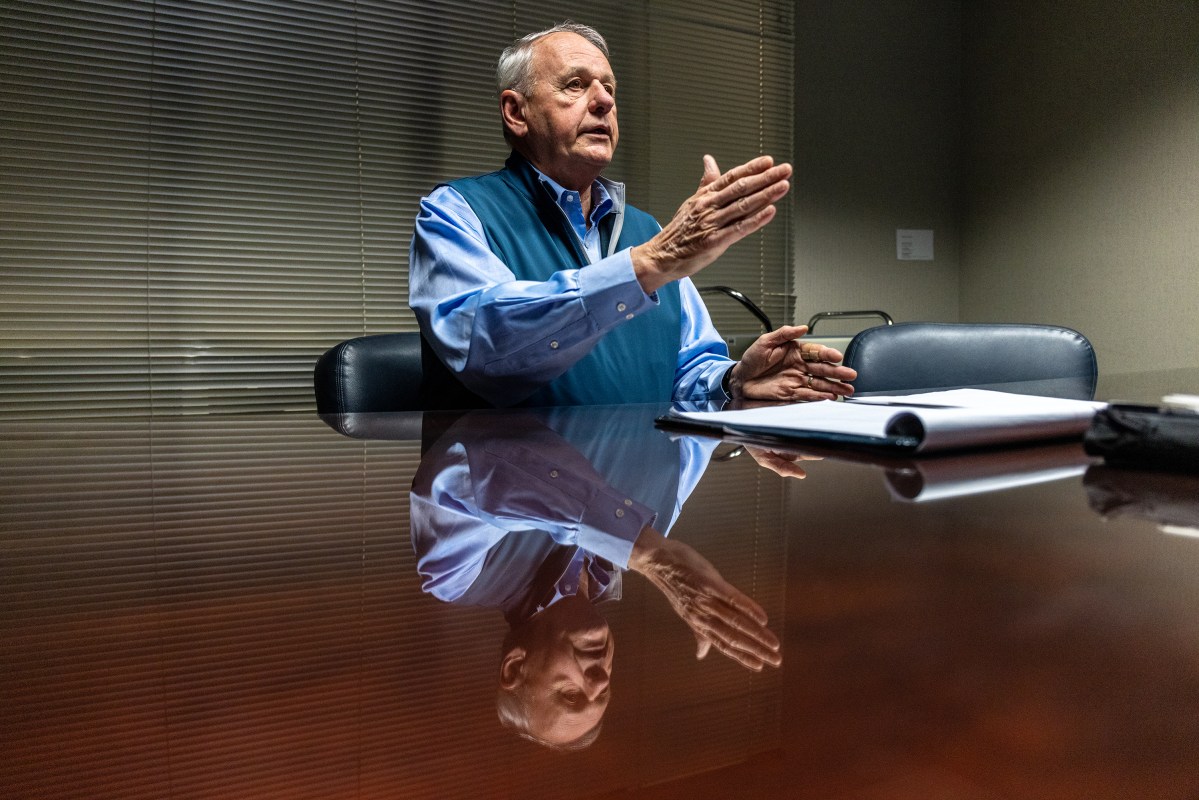
“That’s what’s so heartbreaking about it, is we have all these wonderful doctors that are willing to work in Greenwood — this little small, nondescript, tiny town — and we let them go.”
DeWitt Kimble was born in Greenwood 72 years ago. In the past few years, because of problems with his prostate, he’s increasingly relied on the hospital for emergency care.
Kimble first heard the hospital might shutter about a decade ago. Now that its closure is imminent, he’s worried.
“If you really close this hospital down, we’re going to have to go to Jackson,” he said. “We’re going to have to go to Grenada. We’re going to have to go to Cleveland, and a lot of people don’t have transportation, like me.”
The motor gave out on Kimble’s Suburban about a month ago, and he’s not been able to afford its repair.
If the hospital closes, residents such as Kimble will be forced to travel a half hour or more for care. In the Delta, where much of the population struggles with reliable transportation, the lack of a nearby hospital could be fatal.
Between a quarter and a third of Lucas’ surgeries are canceled, largely because of transportation issues, he said.
Kimble had a surgery scheduled on Monday to remove his catheter. His primary care physician at a private practice said he’d arrange for Kimble’s transportation, but Kimble said he’s called the office repeatedly, and no one has answered.
No one from his doctor’s office could be reached for comment by press time.
Kimble never made it to his procedure.
“I’m just sitting here, so frustrated,” he told Mississippi Today on Monday afternoon.
That means Kimble will still have to rely on his doctor in Greenwood and the hospital for continuing care.
“If the hospital closes, there will be a lot of walking dead,” he said. “Folks will be sick, sick, sick.”
Marchand’s Plan A is getting Greenwood Leflore designated as a critical access hospital. That means the hospital would have to give up almost all of its 200 beds, but it would get more money for services that it provides. Critical access hospitals are typically reimbursed by Medicare at a rate of 101%, theoretically allowing a 1% profit.
State Health Officer Dr. Dan Edney said closing service lines and applying for different hospital designations are solutions he’s seen increasingly across the state, but especially in the Delta. Though they might keep hospitals open, it’s still a loss for the community, he said.
“You take what was a vibrant hospital in the Delta, pre-pandemic, and now it’s a shell of its former self, post-pandemic,” Edney said. “Their only road to survivability is to downgrade.”
But to qualify for the designation, Greenwood Leflore would have to be 35 miles from the nearest hospital.
They’re just short —South Sunflower County Hospital in Indianola is 28 miles away.
Marchand is hoping for a waiver from the Centers for Medicaid and Medicare regarding the distance requirement. His argument is that because of transportation challenges for the hospital’s population, the hospital should be an exception.
If that doesn’t work, the hospital will go up for sale again.
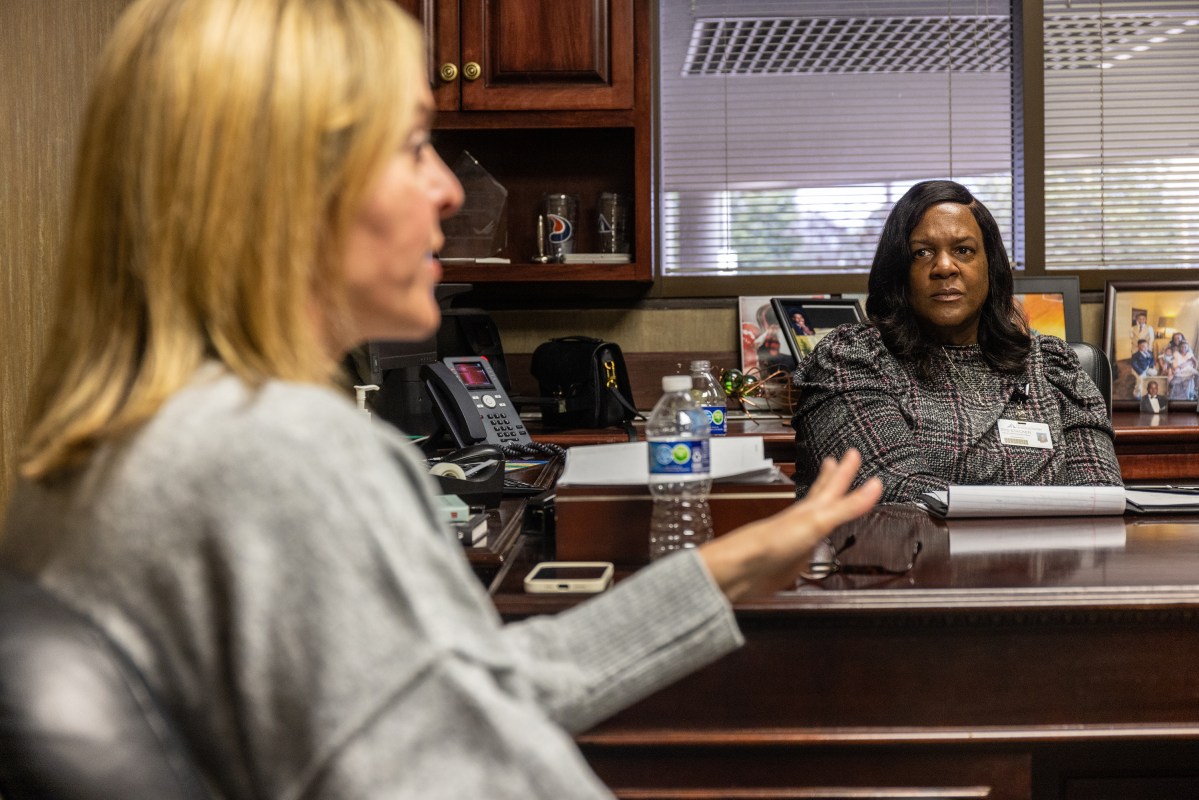
The survival of Delta’s largest health care system will be ‘touch and go’ after this year
If you ask Iris Stacker, interim CEO of Delta Health System in Greenville, how long the hospital system has before it’s forced to close, perplexingly, she smiles.
“I intend to be here forever,” Stacker says.
But Chief Nursing Officer Amy Walker raises an eyebrow.
“We’ll be here through the end of the year,” Walker deadpans. “It’s really touch and go after that.”
The duo head up the largest health care system in the Mississippi Delta. And together, they’re trying to keep it from closing.
Walker’s cynicism is often balanced out by Stacker’s cheeriness, but they do agree on one thing: The hospital is losing money.
“Even Positive Polly over there can’t deny that,” Walker said.
Despite being licensed for over 300 beds, the hospital’s census hovers around 80 patients. And most of the patients are uninsured or on Medicaid or Medicare.
Last year, Delta Health spent about $26 million on uncompensated care. That amounts to about 15% of its total operating expenses.
“We don’t turn people away,” Stacker said. “Instead of trying to go to a doctor and pay for that visit, they wait until 5 p.m. and come to our emergency room.”
But the decline in hospital patients isn’t because care isn’t needed in the Delta, which has some of the worst health disparities in Mississippi.
“It’s not because the patients aren’t here,” Walker said. “It’s because we don’t have the nurses to take care of them.”
Walker said the hospital has long struggled to recruit nurses to Mississippi, much less the Delta.
“We’ve always had that problem,” Walker said. “And if you look at our salaries, we usually have to pay more than Memphis and Jackson to get nurses here. We were already used to doing that.”
The problem worsened during the pandemic, as nurses were offered more money to travel or work elsewhere. Others got so burned out that they went ahead and retired. Statewide, nurse vacancies and turnover rates are at a 10-year high.
Since the pandemic, the hospital’s nurse workforce has nearly halved.
The exodus’ effects have rippled throughout the hospital: emergency wait time has quadrupled, the largest medical surgery unit is closed, and half of the hospital’s ICU beds are not in use.
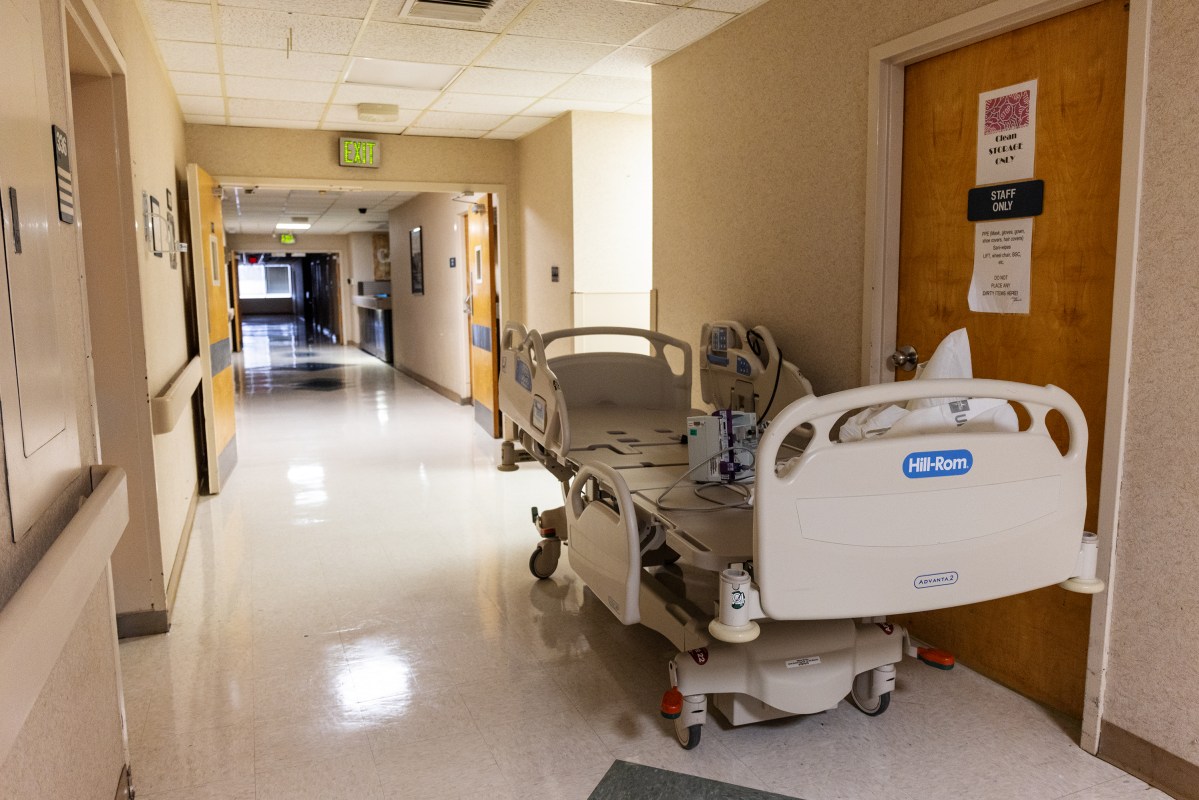
“You would think that now three years out, things would have normalized, but they haven’t, and I don’t think we’re ever going to get back to normal,” Walker said. “We’ve lost so much of our volume at this point. I can’t really predict if it will come back.”
During the pandemic, supply and labor costs shot up. While prices aren’t as high as they were then, they haven’t returned to pre-pandemic levels.
The way Walker explains it, if the price of eggs goes up, a grocery store can make up for the inflation by passing the cost down to the consumer. But that can’t happen in a hospital setting.
Delta Health has to keep serving its patients, no matter if it’s losing money or not.
“We’re pretty much living on grant money right now,” Stacker said.
Stacker knows that Medicaid expansion is unlikely to pass this legislative session, though it’s what she thinks would help the most.
Without systemic changes, Stacker admits that the hospital’s fate is uncertain.
And if the Delta loses the hospital system, it’s going to affect the entire region.
“We save people’s lives every day here,” Walker said. “Once hospitals start closing, those patients aren’t just going to go away.”
Staying afloat, for now
Winston Medical Center’s CEO Paul Black is a numbers guy.
Black’s hesitant to say it, but he admits that his background has helped keep the hospital afloat.
Before taking the helm of the hospital, Black did consulting work for hospitals around the state and made use of his accounting degree as an auditor for the Medicare program.
“This reimbursement stuff is what I grew up doing,” he said. “So when I got started, I had already been on that side of the fence.”
Something his financial background did not prepare him for, though, was a disaster in his first week of work in April 2014.
Six days into his tenure, Louisville was hit by a devastating EF-4 tornado.
“I don’t remember a whole lot about what took place the first six months,” Black said. “I won’t say that I walked around in a fog, but there was just so much going on. And there’s no manual for it.”
During that time, funding was coming from various sources — disaster relief, cash reserves, community loans —which is why, years later, Black said the hospital’s finances don’t look as dire as many other hospitals in the state.
Winston lost money caring for patients during the pandemic, and Black said expenses have gone up while payments have not increased. The nursing home’s population has also been depleted because so many elderly Winston County residents died during the pandemic.
However, Black fought back with changes of his own.
The hospital raised nurse salaries, which convinced many to stay. Additionally, he’s made sure the hospital offers a diverse array of services —from a nursing home to mental health needs — to protect them from financial collapse.
“That keeps a lot of people coming here,” he said. “We’ve been very efficient with what we’re doing.”
But he warned that Winston Medical Center, while not in the red, isn’t in the green either.
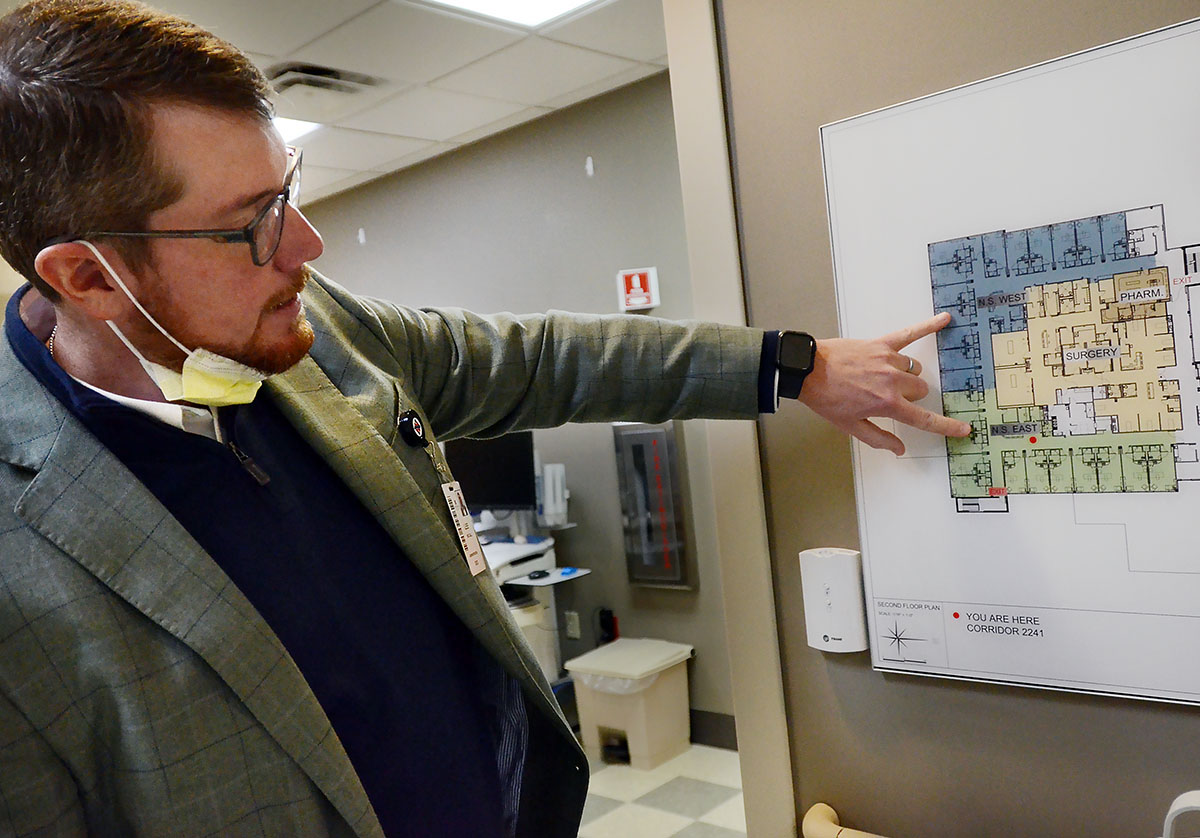
Black’s predecessor, Lee McCall, now heads up Neshoba County General Hospital in Philadelphia, less than an hour from Louisville.
Neshoba County was similarly impacted by COVID —McCall said hospitalizations are down by about half, in part because many of the hospital’s chronically ill and elderly patients who regularly sought care or were in the nursing home died during the pandemic.
When McCall took the CEO job in 2014, the hospital averaged 1,500 annual admissions. Last year, they had 750.
Because of the drop in census, the hospital closed one of its acute floor wings in October to cut costs.
Additionally, more people are visiting the emergency room, where they know the hospital will provide care, whether or not they’re insured.
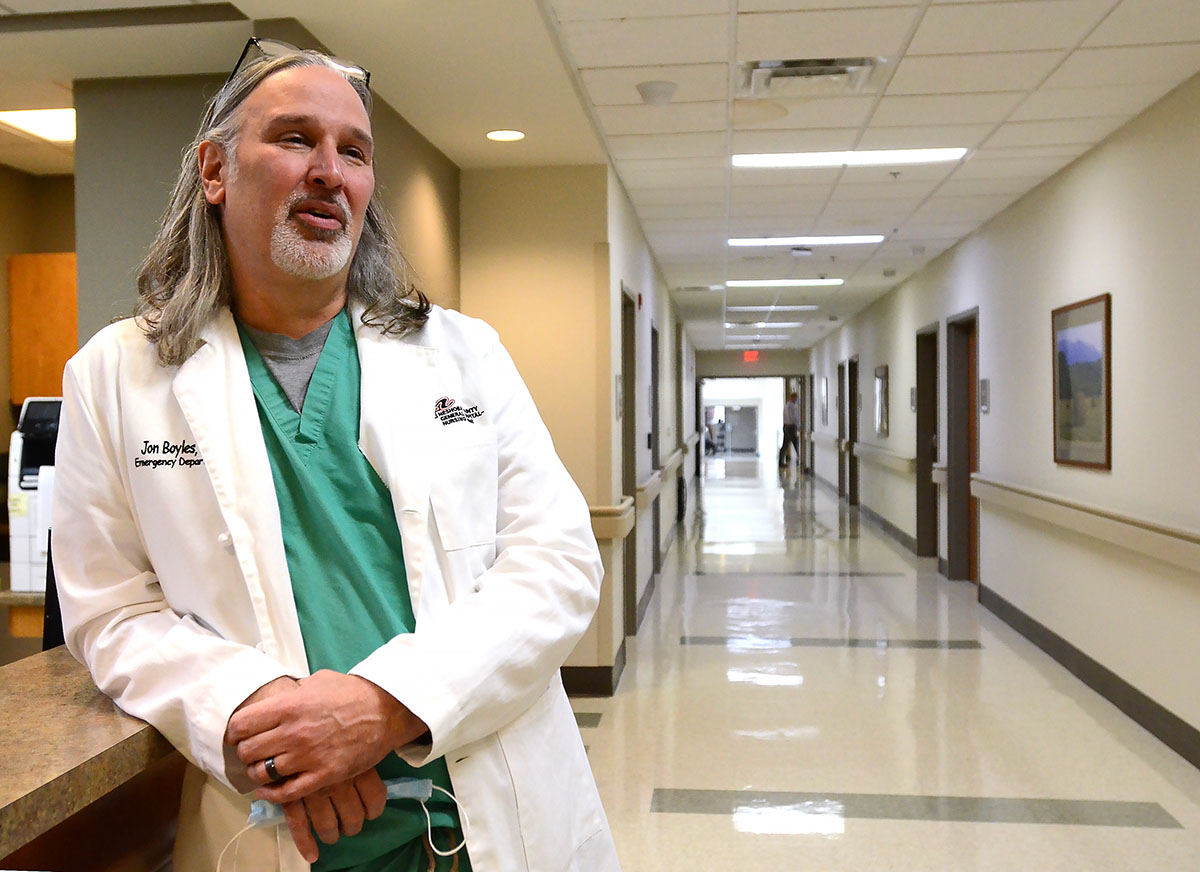
“Our ER visits have definitely gone up,” said Dr. Jon Boyles, the hospital’s emergency department director. “We’re seeing it seems more and more people who basically use the ER as a clinic.”
The hospital also lost staff during the pandemic — staff they can’t afford to hire back. McCall said he’s trying to do everything he can to prevent layoffs.
“To be honest, there’s just not anywhere to really lay off unless we just shut down a service line completely, which we’re trying to avoid at all costs,” he said.
McCall has kept a close eye on the Capitol the past few months. Like Stacker in Greenville, McCall knows Medicaid expansion isn’t going to happen this session, but he’ll keep advocating for it.
He doesn’t deny that hospitals need the grant money making its way through the Legislature, but said hospitals need a sustainable solution — not a temporary one.
“That’s one-time money,” McCall said. “That doesn’t fix the ongoing problem. So we’re going to be right back where we are now next year.”
This article first appeared on Mississippi Today and is republished here under a Creative Commons license.
Mississippi Today
Mississippi prepares for another execution
The Mississippi Supreme Court has set the execution of a man who kidnapped and murdered a 20-year-old community college student in north Mississippi 30 years ago.
Charles Ray Crawford, 59, is set to be executed Oct. 15 at the Mississippi State Penitentiary at Parchman, after multiple requests by the attorney general’s office.
Eight justices joined the majority opinion to set the execution, concluding that Crawford has exhausted all state and federal legal remedies. Mississippi Supreme Court Justice T. Kenneth Griffis Jr. wrote the Friday opinion. Justice David Sullivan did not participate.
However, Kristy Noble with the Mississippi Office of Capital Post-Conviction Counsel released a statement saying it will file another appeal with the U.S. Supreme Court.
“”Mr. Crawford’s inexperienced trial counsel conceded his guilt to the jury — against Mr.
Crawford’s timely and repeated objections,” Noble said in the statement. “Mr. Crawford told his counsel to pursue a not guilty verdict. Counsel did just the opposite, which is precisely what the U.S. Supreme Court says counsel cannot do,” Noble said in the statement.
“A trial like Mr. Crawford’s – one where counsel concedes guilt over his client’s express wishes – is essentially no trial at all.”
Last fall, Crawford’s attorneys asked the court not to set an execution date because he hadn’t exhausted appeal efforts in federal court to challenge a rape conviction that is not tied to his death sentence. In June, the U.S. Supreme Court declined to take up Crawford’s case.
A similar delay occurred a decade ago, when the AG’s office asked the court to reset Crawford’s execution date, but that was denied because efforts to appeal his unrelated rape conviction were still pending.
After each unsuccessful filing, the attorney general’s office asked the Mississippi Supreme Court to set Crawford’s execution date.
On Friday, the court also denied Crawford’s third petition for post-conviction relief and a request for oral argument. It accepted the state’s motion to dismiss the petition. Seven justices concurred and Justice Leslie King concurred in result only. Again, Justice Sullivan did not participate.
Crawford was convicted and sentenced to death in Lafayette County for the 1993 rape and murder of North Mississippi Community College student Kristy Ray.
Days before he was set to go to trial on separate aggravated assault and rape charges, he kidnapped Ray from her parents’ Tippah County home, leaving ransom notes. Crawford took Ray to an abandoned barn where he stabbed her, and his DNA was found on her, indicating he sexually assaulted her, according to court records.
Crawford told police he had blackouts and only remembered parts of the crime, but not killing Ray. Later he admitted “he must of killed her” and led police to Ray’s body, according to court records.
At his 1994 trial he presented an insanity defense, including that he suffered from psychogenic amnesia – periods of time lapse without memory. Medical experts who provided rebuttal testimony said Crawford didn’t have psychogenic amnesia and didn’t show evidence of bipolar illness.
The last person executed in Mississippi was Richard Jordan in June, previously the state’s oldest and longest serving person on death row.
There are 36 people on death row, according to records from the Mississippi Department of Corrections.
Update 9/15/25: This story has been updated to include a response from the Mississippi Office of Capital Post-Conviction Counsel
This article first appeared on Mississippi Today and is republished here under a Creative Commons Attribution-NoDerivatives 4.0 International License.
The post Mississippi prepares for another execution appeared first on mississippitoday.org
Note: The following A.I. based commentary is not part of the original article, reproduced above, but is offered in the hopes that it will promote greater media literacy and critical thinking, by making any potential bias more visible to the reader –Staff Editor.
Political Bias Rating: Centrist
The article presents a factual and balanced account of the legal proceedings surrounding a scheduled execution in Mississippi. It includes perspectives from both the state’s attorney general’s office and the defense counsel, without using emotionally charged language or advocating for a particular political stance. The focus on legal details and court decisions reflects a neutral, informative approach typical of centrist reporting.
Mississippi Today
Presidents are taking longer to declare major natural disasters. For some, the wait is agonizing
TYLERTOWN — As an ominous storm approached Buddy Anthony’s one-story brick home, he took shelter in his new Ford F-250 pickup parked under a nearby carport.
Seconds later, a tornado tore apart Anthony’s home and damaged the truck while lifting it partly in the air. Anthony emerged unhurt. But he had to replace his vehicle with a used truck that became his home while waiting for President Donald Trump to issue a major disaster declaration so that federal money would be freed for individuals reeling from loss. That took weeks.
“You wake up in the truck and look out the windshield and see nothing. That’s hard. That’s hard to swallow,” Anthony said.
Disaster survivors are having to wait longer to get aid from the federal government, according to a new Associated Press analysis of decades of data. On average, it took less than two weeks for a governor’s request for a presidential disaster declaration to be granted in the 1990s and early 2000s. That rose to about three weeks during the past decade under presidents from both major parties. It’s taking more than a month, on average, during Trump’s current term, the AP found.
The delays mean individuals must wait to receive federal aid for daily living expenses, temporary lodging and home repairs. Delays in disaster declarations also can hamper recovery efforts by local officials uncertain whether they will receive federal reimbursement for cleaning up debris and rebuilding infrastructure. The AP collaborated with Mississippi Today and Mississippi Free Press on the effects of these delays for this report.
“The message that I get in the delay, particularly for the individual assistance, is that the federal government has turned its back on its own people,” said Bob Griffin, dean of the College of Emergency Preparedness, Homeland Security and Cybersecurity at the University at Albany in New York. “It’s a fundamental shift in the position of this country.”
The wait for disaster aid has grown as Trump remakes government
The Federal Emergency Management Agency often consults immediately with communities to coordinate their initial disaster response. But direct payments to individuals, nonprofits and local governments must wait for a major disaster declaration from the president, who first must receive a request from a state, territory or tribe. Major disaster declarations are intended only for the most damaging events that are beyond the resources of states and local governments.
Trump has approved more than two dozen major disaster declarations since taking office in January, with an average wait of almost 34 days after a request. That ranged from a one-day turnaround after July’s deadly flash flooding in Texas to a 67-day wait after a request for aid because of a Michigan ice storm. The average wait is up from a 24-day delay during his first term and is nearly four times as long as the average for former Republican President George H.W. Bush, whose term from 1989-1993 coincided with the implementation of a new federal law setting parameters for disaster determinations.
The delays have grown over time, regardless of the party in power. Former Democratic President Joe Biden, in his last year in office, averaged 26 days to declare major disasters — longer than any year under former Democratic President Barack Obama.

FEMA did not respond to the AP’s questions about what factors are contributing to the trend.
Others familiar with FEMA noted that its process for assessing and documenting natural disasters has become more complex over time. Disasters have also become more frequent and intense because of climate change, which is mostly caused by the burning of fuels such as gas, coal and oil.
The wait for disaster declarations has spiked as Trump’s administration undertakes an ambitious makeover of the federal government that has shed thousands of workers and reexamined the role of FEMA. A recently published letter from current and former FEMA employees warned the cuts could become debilitating if faced with a large-enough disaster. The letter also lamented that the Trump administration has stopped maintaining or removed long-term planning tools focused on extreme weather and disasters.
Shortly after taking office, Trump floated the idea of “getting rid” of FEMA, asserting: “It’s very bureaucratic, and it’s very slow.”
FEMA’s acting chief suggested more recently that states should shoulder more responsibility for disaster recovery, though FEMA thus far has continued to cover three-fourths of the costs of public assistance to local governments, as required under federal law. FEMA pays the full cost of its individual assistance.
Former FEMA Administrator Pete Gaynor, who served during Trump’s first term, said the delay in issuing major disaster declarations likely is related to a renewed focus on making sure the federal government isn’t paying for things state and local governments could handle.
“I think they’re probably giving those requests more scrutiny,” Gaynor said. “And I think it’s probably the right thing to do, because I think the (disaster) declaration process has become the ‘easy button’ for states.”
The Associated Press on Monday received a statement from White House spokeswoman Abigail Jackson in response to a question about why it is taking longer to issue major natural disaster declarations:
“President Trump provides a more thorough review of disaster declaration requests than any Administration has before him. Gone are the days of rubber stamping FEMA recommendations – that’s not a bug, that’s a feature. Under prior Administrations, FEMA’s outsized role created a bloated bureaucracy that disincentivized state investment in their own resilience. President Trump is committed to right-sizing the Federal government while empowering state and local governments by enabling them to better understand, plan for, and ultimately address the needs of their citizens. The Trump Administration has expeditiously provided assistance to disasters while ensuring taxpayer dollars are spent wisely to supplement state actions, not replace them.”

In Mississippi, frustration festered during wait for aid
The tornado that struck Anthony’s home in rural Tylertown on March 15 packed winds up to 140 mph. It was part of a powerful system that wrecked homes, businesses and lives across multiple states.
Mississippi’s governor requested a federal disaster declaration on April 1. Trump granted that request 50 days later, on May 21, while approving aid for both individuals and public entities.
On that same day, Trump also approved eight other major disaster declarations for storms, floods or fires in seven other states. In most cases, more than a month had passed since the request and about two months since the date of those disasters.
If a presidential declaration and federal money had come sooner, Anthony said he wouldn’t have needed to spend weeks sleeping in a truck before he could afford to rent the trailer where he is now living. His house was uninsured, Anthony said, and FEMA eventually gave him $30,000.
In nearby Jayess in Lawrence County, Dana Grimes had insurance but not enough to cover the full value of her damaged home. After the eventual federal declaration, Grimes said FEMA provided about $750 for emergency expenses, but she is now waiting for the agency to determine whether she can receive more.

“We couldn’t figure out why the president took so long to help people in this country,” Grimes said. “I just want to tie up strings and move on. But FEMA — I’m still fooling with FEMA.”
Jonathan Young said he gave up on applying for FEMA aid after the Tylertown tornado killed his 7-year-old son and destroyed their home. The process seemed too difficult, and federal officials wanted paperwork he didn’t have, Young said. He made ends meet by working for those cleaning up from the storm.
“It’s a therapy for me,” Young said, “to pick up the debris that took my son away from me.”
Historically, presidential disaster declarations containing individual assistance have been approved more quickly than those providing assistance only to public entities, according to the AP’s analysis. That remains the case under Trump, though declarations for both types are taking longer.
About half the major disaster declarations approved by Trump this year have included individual assistance.
Some people whose homes are damaged turn to shelters hosted by churches or local nonprofit organizations in the initial chaotic days after a disaster. Others stay with friends or family or go to a hotel, if they can afford it.
But some insist on staying in damaged homes, even if they are unsafe, said Chris Smith, who administered FEMA’s individual assistance division under three presidents from 2015-2022. If homes aren’t repaired properly, mold can grow, compounding the recovery challenges.

That’s why it’s critical for FEMA’s individual assistance to get approved quickly — ideally, within two weeks of a disaster, said Smith, who’s now a disaster consultant for governments and companies.
“You want to keep the people where they are living. You want to ensure those communities are going to continue to be viable and recover,” Smith said. “And the earlier that individual assistance can be delivered … the earlier recovery can start.”
In the periods waiting for declarations, the pressure falls on local officials and volunteers to care for victims and distribute supplies.
In Walthall County, where Tylertown is, insurance agent Les Lampton remembered watching the weather news as the first tornado missed his house by just an eighth of a mile. Lampton, who moonlights as a volunteer firefighter, navigated the collapsed trees in his yard and jumped into action. About 45 minutes later, the second tornado hit just a mile away.
“It was just chaos from there on out,” Lampton said.
Walthall County, with a population of about 14,000, hasn’t had a working tornado siren in about 30 years, Lampton said. He added there isn’t a public safe room in the area, although a lot of residents have ones in their home.
Rural areas with limited resources are hit hard by delays in receiving funds through FEMA’s public assistance program, which, unlike individual assistance, only reimburses local entities after their bills are paid. Long waits can stoke uncertainty and lead cost-conscious local officials to pause or scale-back their recovery efforts.

In Walthall County, officials initially spent about $700,000 cleaning up debris, then suspended the cleanup for more than a month because they couldn’t afford to spend more without assurance they would receive federal reimbursement, said county emergency manager Royce McKee. Meanwhile, rubble from splintered trees and shattered homes remained piled along the roadside, creating unsafe obstacles for motorists and habitat for snakes and rodents.
When it received the federal declaration, Walthall County took out a multimillion-dollar loan to pay contractors to resume the cleanup.
“We’re going to pay interest and pay that money back until FEMA pays us,” said Byran Martin, an elected county supervisor. “We’re hopeful that we’ll get some money by the first of the year, but people are telling us that it could be [longer].”
Lampton, who took after his father when he joined the volunteer firefighters 40 years ago, lauded the support of outside groups such as Cajun Navy, Eight Days of Hope, Samaritan’s Purse and others. That’s not to mention the neighbors who brought their own skid steers and power saws to help clear trees and other debris, he added.
“That’s the only thing that got us through this storm, neighbors helping neighbors,” Lampton said. “If we waited on the government, we were going to be in bad shape.”
Lieb reported from Jefferson City, Missouri, and Wildeman from Hartford, Connecticut.
Update 98/25: This story has been updated to include a White House statement released after publication.
This article first appeared on Mississippi Today and is republished here under a Creative Commons Attribution-NoDerivatives 4.0 International License.
The post Presidents are taking longer to declare major natural disasters. For some, the wait is agonizing appeared first on mississippitoday.org
Note: The following A.I. based commentary is not part of the original article, reproduced above, but is offered in the hopes that it will promote greater media literacy and critical thinking, by making any potential bias more visible to the reader –Staff Editor.
Political Bias Rating: Center-Left
This article presents a critical view of the Trump administration’s handling of disaster declarations, highlighting delays and their negative impacts on affected individuals and communities. It emphasizes concerns about government downsizing and reduced federal support, themes often associated with center-left perspectives that favor robust government intervention and social safety nets. However, it also includes statements from Trump administration officials defending their approach, providing some balance. Overall, the tone and framing lean slightly left of center without being overtly partisan.
Mississippi Today
Northeast Mississippi speaker and worm farmer played key role in Coast recovery after Hurricane Katrina
The 20th anniversary of Hurricane Katrina slamming the Mississippi Gulf Coast has come and gone, rightfully garnering considerable media attention.
But still undercovered in the 20th anniversary saga of the storm that made landfall on Aug. 29, 2005, and caused unprecedented destruction is the role that a worm farmer from northeast Mississippi played in helping to revitalize the Coast.
House Speaker Billy McCoy, who died in 2019, was a worm farmer from the Prentiss, not Alcorn County, side of Rienzi — about as far away from the Gulf Coast as one could be in Mississippi.
McCoy grew other crops, but a staple of his operations was worm farming.
Early after the storm, the House speaker made a point of touring the Coast and visiting as many of the House members who lived on the Coast as he could to check on them.
But it was his action in the forum he loved the most — the Mississippi House — that is credited with being key to the Coast’s recovery.
Gov. Haley Barbour had called a special session about a month after the storm to take up multiple issues related to Katrina and the Gulf Coast’s survival and revitalization. The issue that received the most attention was Barbour’s proposal to remove the requirement that the casinos on the Coast be floating in the Mississippi Sound.
Katrina wreaked havoc on the floating casinos, and many operators said they would not rebuild if their casinos had to be in the Gulf waters. That was a crucial issue since the casinos were a major economic engine on the Coast, employing an estimated 30,000 in direct and indirect jobs.
It is difficult to fathom now the controversy surrounding Barbour’s proposal to allow the casinos to locate on land next to the water. Mississippi’s casino industry that was birthed with the early 1990s legislation was still new and controversial.
Various religious groups and others had continued to fight and oppose the casino industry and had made opposition to the expansion of gambling a priority.
Opposition to casinos and expansion of casinos was believed to be especially strong in rural areas, like those found in McCoy’s beloved northeast Mississippi. It was many of those rural areas that were the homes to rural white Democrats — now all but extinct in the Legislature but at the time still a force in the House.
So, voting in favor of casino expansion had the potential of being costly for what was McCoy’s base of power: the rural white Democrats.
Couple that with the fact that the Democratic-controlled House had been at odds with the Republican Barbour on multiple issues ranging from education funding to health care since Barbour was inaugurated in January 2004.
Barbour set records for the number of special sessions called by the governor. Those special sessions often were called to try to force the Democratic-controlled House to pass legislation it killed during the regular session.
The September 2005 special session was Barbour’s fifth of the year. For context, current Gov. Tate Reeves has called four in his nearly six years as governor.
There was little reason to expect McCoy to do Barbour’s bidding and lead the effort in the Legislature to pass his most controversial proposal: expanding casino gambling.
But when Barbour ally Lt. Gov. Amy Tuck, who presided over the Senate, refused to take up the controversial bill, Barbour was forced to turn to McCoy.
The former governor wrote about the circumstances in an essay he penned on the 20th anniversary of Hurricane Katrina for Mississippi Today Ideas.
“The Senate leadership, all Republicans, did not want to go first in passing the onshore casino law,” Barbour wrote. “So, I had to ask Speaker McCoy to allow it to come to the House floor and pass. He realized he should put the Coast and the state’s interests first. He did so, and the bill passed 61-53, with McCoy voting no.
“I will always admire Speaker McCoy, often my nemesis, for his integrity in putting the state first.”
Incidentally, former Rep. Bill Miles of Fulton, also in northeast Mississippi, was tasked by McCoy with counting, not whipping votes, to see if there was enough support in the House to pass the proposal. Not soon before the key vote, Miles said years later, he went to McCoy and told him there were more than enough votes to pass the legislation so he was voting no and broached the idea of the speaker also voting no.
It is likely that McCoy would have voted for the bill if his vote was needed.
Despite his no vote, the Biloxi Sun Herald newspaper ran a large photo of McCoy and hailed the Rienzi worm farmer as a hero for the Mississippi Gulf Coast.
This article first appeared on Mississippi Today and is republished here under a Creative Commons Attribution-NoDerivatives 4.0 International License.
The post Northeast Mississippi speaker and worm farmer played key role in Coast recovery after Hurricane Katrina appeared first on mississippitoday.org
Note: The following A.I. based commentary is not part of the original article, reproduced above, but is offered in the hopes that it will promote greater media literacy and critical thinking, by making any potential bias more visible to the reader –Staff Editor.
Political Bias Rating: Centrist
The article presents a factual and balanced account of the political dynamics surrounding Hurricane Katrina recovery efforts in Mississippi, focusing on bipartisan cooperation between Democratic and Republican leaders. It highlights the complexities of legislative decisions without overtly favoring one party or ideology, reflecting a neutral and informative tone typical of centrist reporting.
-
News from the South - Kentucky News Feed7 days ago
Lexington man accused of carjacking, firing gun during police chase faces federal firearm charge
-
News from the South - Alabama News Feed7 days ago
Zaxby's Player of the Week: Dylan Jackson, Vigor WR
-
News from the South - Arkansas News Feed7 days ago
Arkansas medical marijuana sales on pace for record year
-
News from the South - North Carolina News Feed5 days ago
What we know about Charlie Kirk shooting suspect, how he was caught
-
Local News7 days ago
US stocks inch to more records as inflation slows and Oracle soars
-
Local News6 days ago
Russian drone incursion in Poland prompts NATO leaders to take stock of bigger threats
-
Local News Video6 days ago
Introducing our WXXV Student Athlete of the Week, St. Patrick’s Parker Talley!
-
News from the South - North Carolina News Feed5 days ago
Federal hate crime charge sought in Charlotte stabbing | North Carolina
